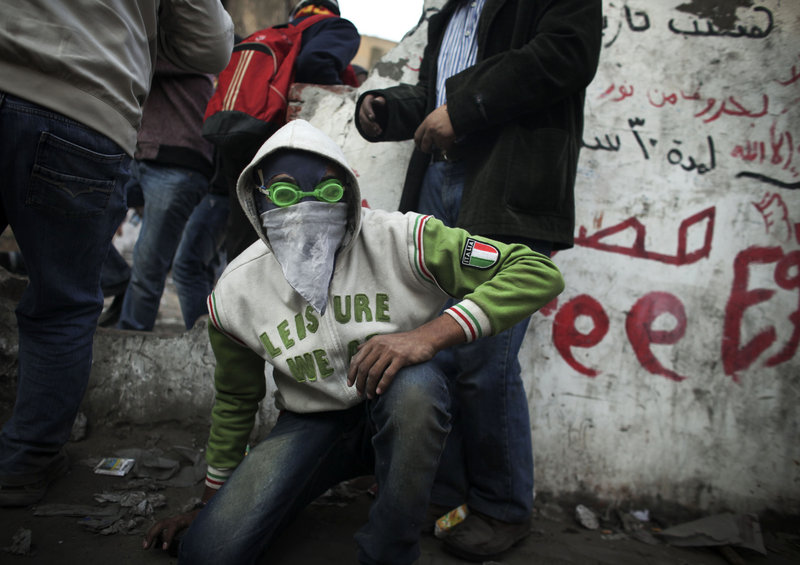CAIRO — Egypt’s military ruler promised Tuesday to speed up a presidential election to the first half of 2012 and said the armed forces were prepared to hold a referendum on immediately shifting power to civilians. But the concessions were swiftly rejected by tens of thousands of protesters in Tahrir Square, who chanted “Leave! Leave!”
The latest standoff plunged the country deeper into crisis less than a week before parliamentary elections, the first since the ouster nine months ago of longtime authoritarian leader Hosni Mubarak.
In a televised address, Field Marshal Hussein Tantawi rejected all criticism of the military’s handling of the transitional period and sought to cast himself and the generals on the military council he heads as the nation’s foremost patriots. Significantly, he made no mention of the throngs of protesters gathered in Tahrir Square to demand that he step down immediately in favor of an interim civilian council.
Tantawi spoke as protesters fought army soldiers and police for a fourth day in streets leading to the iconic square that was the birthplace of Egypt’s uprising, particularly near the heavily fortified Interior Ministry, which is in charge of police. Nearly 30 people have been killed in the violence, mostly in Cairo, and at least 2,000 have been wounded.
“Our demands are clear,” said Khaled El-Sayed, a protester from the Youth Revolution Coalition and a candidate in Monday’s parliamentary election. “We want the military council to step down and hand over authority to a national salvation government with full authority.”
The military previously floated the end of next year or early 2013 as the likely dates for the presidential election, which is widely being seen as the last stop in the process of transferring power. But Tantawi did not mention a specific date for the vote or when the military would return to its barracks.
Furthermore, his offer for the military to step down immediately if the people so wished in a referendum was vague at best. His referendum proposal suggests that Tantawi has no faith that the crowds in the streets of Cairo and other cities represent the nation’s will.
Tantawi’s address bore a striking resemblance to Mubarak’s televised speeches during the uprising, when the ousted leader made one concession after another, only to be rejected by protesters as too little, too late.
Send questions/comments to the editors.



Success. Please wait for the page to reload. If the page does not reload within 5 seconds, please refresh the page.
Enter your email and password to access comments.
Hi, to comment on stories you must . This profile is in addition to your subscription and website login.
Already have a commenting profile? .
Invalid username/password.
Please check your email to confirm and complete your registration.
Only subscribers are eligible to post comments. Please subscribe or login first for digital access. Here’s why.
Use the form below to reset your password. When you've submitted your account email, we will send an email with a reset code.